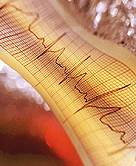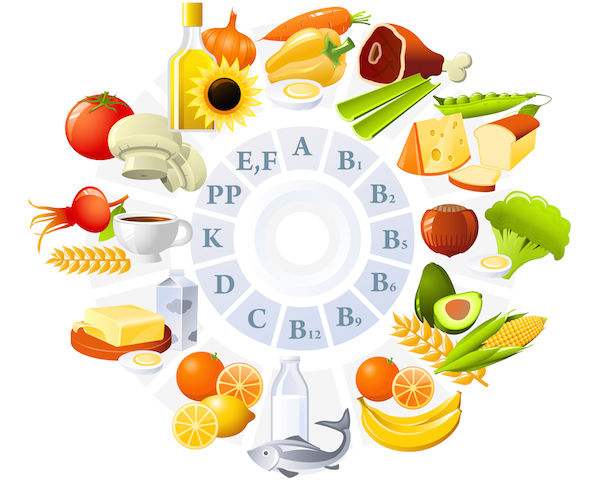
TUESDAY, March 26 (HealthDay News) — Results from a major trial on controversial chelation therapy for patients with a history of heart attack find a modest benefit from the expensive treatment, but experts conclude there’s no clear evidence supporting its use.
Still, “groups that advocate for chelation and groups that oppose chelation will both find comfort in the results,” said one expert not connected to the study, Dr. Stephen Green, associate chairman in the department of cardiology at North Shore University Hospital in Manhasset, N.Y.
Chelation therapy involves dozens of arduous infusions conducted over a period of years, aimed at leaching excess metals from the body. Patients typically also receive high doses of vitamins and minerals. The therapy has been offered to heart patients by some clinics across the United States for decades, although its use for this purpose has been considered controversial and it has never received approval as a heart disease treatment from the U.S. Food and Drug Administration.
The results of this latest study are published in the March 27 issue of the Journal of the American Medical Association. Findings from the same study were also presented earlier this month at the annual meeting of the American College of Cardiology (ACC) in San Francisco, and at last fall’s annual meeting of the American Heart Association.
Speaking at the ACC meeting on March 10, the study’s lead researcher said that the modest benefit noted in the study had not made him any more ready to recommend chelation therapy.
“These findings should stimulate further research, but are not by themselves sufficient to recommend the routine use of chelation therapy and high-dose vitamins in most patients,” said Dr. Gervasio Lamas, chief of the Columbia University division of cardiology at Mount Sinai Medical Center, in Miami Beach, Fla.
The trial, which was funded by the U.S. National Institutes of Health, involved more than 1,700 patients from the United States and Canada who had suffered a previous heart attack. Most were already taking standard therapies such as daily aspirin, cholesterol-lowering statins or blood pressure medications.
In the new analysis of the data, the patients were divided into two groups: high-dose vitamin/mineral supplements plus chelation or “dummy” placebo infusions/supplements. Chelation therapy consisted of 40 three-hour sessions with the IV infusions spread over anywhere between 50 and 110 weeks. Doses of vitamins and minerals given were much higher than recommended daily intakes.
After an average follow-up of more than four and a half years, the team did see a slight benefit among the group who took the vitamins/minerals in combination with chelation therapy. Twenty-six percent of people in this group experienced some kind of cardiovascular event such as heart attack, stroke or hospitalization for angina (chest pain) — less than the 30 percent seen among those who got placebo/placebo therapy only.
Still, the gap was not huge and Lamas, who does not use chelation therapy in his own practice, said he cannot recommend it at this time. The researchers also noted that the drop-out rate among participants was relatively high: 281 people in the placebo arm stopped treatment before the study’s end, as did 233 of those taking chelation.
“The message really is a cautious message,” Lamas said. “We brought something that has been an alternative medicine treatment into the realm of scientific inquiry and found unexpected results that may merit future research. However, we don’t think that the results of any single trial are enough to carry this novel hypothesis into daily use for patients.”
In an editorial published in JAMA, the journal’s editor-in-chief, Dr. Howard Bauchner said that “based on full consideration of the strengths and limitations of [this study], the conclusion is clear and should influence practice — these findings do not support the routine use of chelation therapy as secondary prevention for patients with previous [heart attack] and established coronary disease.”
But Green said the debate over chelation’s effectiveness may continue.
“The use of chelation therapy for coronary artery disease has had its advocates for decades, but predominantly outside of regular medical circles,” Green noted. “This is because there has not been what was considered a good hypothesis to explain why it should work for coronary atherosclerosis [hardening of the arteries].”
Beyond that are safety concerns linked to the therapy’s removal of calcium from the bloodstream. In the study, the researchers noted that the treatment “may cause hypocalcemia [abnormally low calcium in the blood] and death.”
Speaking at the time of the ACC meeting presentation in San Francisco, cardiologist Dr. Tara Narula, associate director of the cardiac care unit at Lenox Hill Hospital in New York City, was similarly dubious of chelation’s usefulness.
“Although it is noteworthy that chelation may be helpful, it is an expensive treatment and does carry significant side effects,” she said.
More information
There’s more on the care of heart attack patients at the U.S. National Heart, Lung, and Blood Institute.

